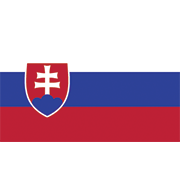Fiscal subject related
The new reduced VAT rate is expected to provide relief to the tourism and catering sectors, which have been severely impacted by the COVID-19 pandemic. The Slovakian government hopes that the reduced VAT rate will encourage more people to participate in leisure activities and patronize restaurants and catering services.
The reduced VAT rate will apply to cable car and ski lift services, which are essential to the country's winter tourism industry. With the reduced VAT rate, ski resorts and other winter sports destinations will be able to offer their services at more affordable rates, making them more accessible to local and foreign tourists.
In addition to winter sports facilities, the reduced VAT rate will also apply to access to indoor and outdoor sports facilities and swimming pools. This will provide much-needed relief to fitness centers, gyms, and swimming pool operators, which have been struggling due to the pandemic-related closures and restrictions.
The reduced VAT rate will also apply to certain restaurant and catering services, such as the sale of hot and cold food and non-alcoholic beverages for consumption on the premises or for takeaway. This will benefit the country's restaurant and catering industries, which have been hard hit by pandemic-related restrictions and closures.
The reduced VAT rate is expected to have a positive impact on the country's economy by providing support to the tourism and catering sectors. It is hoped that the measure will encourage more people to travel and engage in leisure activities, thus contributing to the recovery of the country's tourism industry.
Other news from Slovakia
New document was uploaded: Act of the National Council of the Slovak Republic (EN)
 Slovakia
Author: ...........
Slovakia
Author: ...........
This document is Slovak Act No. 384/2025 Coll. on Sales Records, effective from 1 January 2026, which establishes the legal framework for recording sales through the eKasa system in Slovakia. It defines the obligations of sellers when accepting payments, regulates the use of online, software-based, and virtual cash registers, and sets detailed technical and certification requirements for cash register software and protected data storage. Read more
Subscribe to get access to the latest news, documents, webinars and educations.
Already subscriber? Login


New document was uploaded: Act of the National Council of the Slovak Republic (SK)
 Slovakia
Author: ..............
Slovakia
Author: ..............
This document is Slovak Act No. 384/2025 Coll. on Sales Records, effective from 1 January 2026, which establishes the legal framework for recording sales through the eKasa system in Slovakia. It defines the obligations of sellers when accepting payments, regulates the use of online, software-based, and virtual cash registers, and sets detailed technical and certification requirements for cash register software and protected data storage. Read more
Subscribe to get access to the latest news, documents, webinars and educations.
Already subscriber? Login


Important notice: changes to cash register rules from 1 January 2026 in Slovakia
 Slovakia
Author: Nikolina Basić
Slovakia
Author: Nikolina Basić
From 1 January 2026, Slovakia will fully transition to eKasa-only cash register reporting, phasing out legacy fiscal devices, formally allowing cloud-based cash registers, expanding the scope of sales subject to recording, extending online response times, preserving controlled offline reporting, and mandating QR codes on receipts for public verification. In general, changes include: Electronic... Read more



Retailers in Slovakia must inform customers of eKasa rights from January 2026
 Slovakia
Author: Nikolina Basić
Slovakia
Author: Nikolina Basić
From 1 January 2026, Slovakia will require all retailers accepting cash or digital payments to prominently display a notice at the point of sale informing customers of their legal right to receive a receipt, under Act No. 384/2025 Coll. on Sales Records. The measure applies to all businesses using the eKasa system, includes detailed placement and format rules issued by the Tax Administration, and... Read more



Slovak Parliament passes new law: changes to cash register obligations coming in 2026
 Slovakia
Author: Nikolina Basić
Slovakia
Author: Nikolina Basić
Slovakia has adopted a new Law on Sales Records that will take effect on 1 January 2026, abolishing most exemptions and requiring nearly all sellers—including craftsmen, landlords, and service providers—to record sales in real time via the eKasa system, regardless of business type or place of establishment. The reform also introduces mandatory visible notices, cashless payment acceptance for sale... Read more



New document was uploaded: E-invoicing system in Slovakia
 Slovakia
Author: Nikolina Basić
Slovakia
Author: Nikolina Basić
This document outlines the legislative framework and implementation timeline for the introduction of mandatory electronic invoicing in the Slovak Republic. The measures arise from amendments to the VAT Act and implementing regulations issued by the Ministry of Finance and the Financial Directorate of the Slovak Republic (“Financial Directorate”). Read more
Subscribe to get access to the latest news, documents, webinars and educations.
Already subscriber? Login


New document was uploaded: S4F backoffice installer
S4F backoffice installer is intended for users who are installing the software for the first time. Please make sure to obtain latest version of installer and to apply all subsequent patches that are released subsequently. This package contains instruction, release notes, changelog and software packages required for deployment of this software component. This version of the Backoffice installer supports the following countries: Austria, Bulgaria, Croatia, France, Italy, Poland, Portugal, Romania, Slovakia and Slovenia. Read more
Subscribe to get access to the latest news, documents, webinars and educations.
Already subscriber? Login

